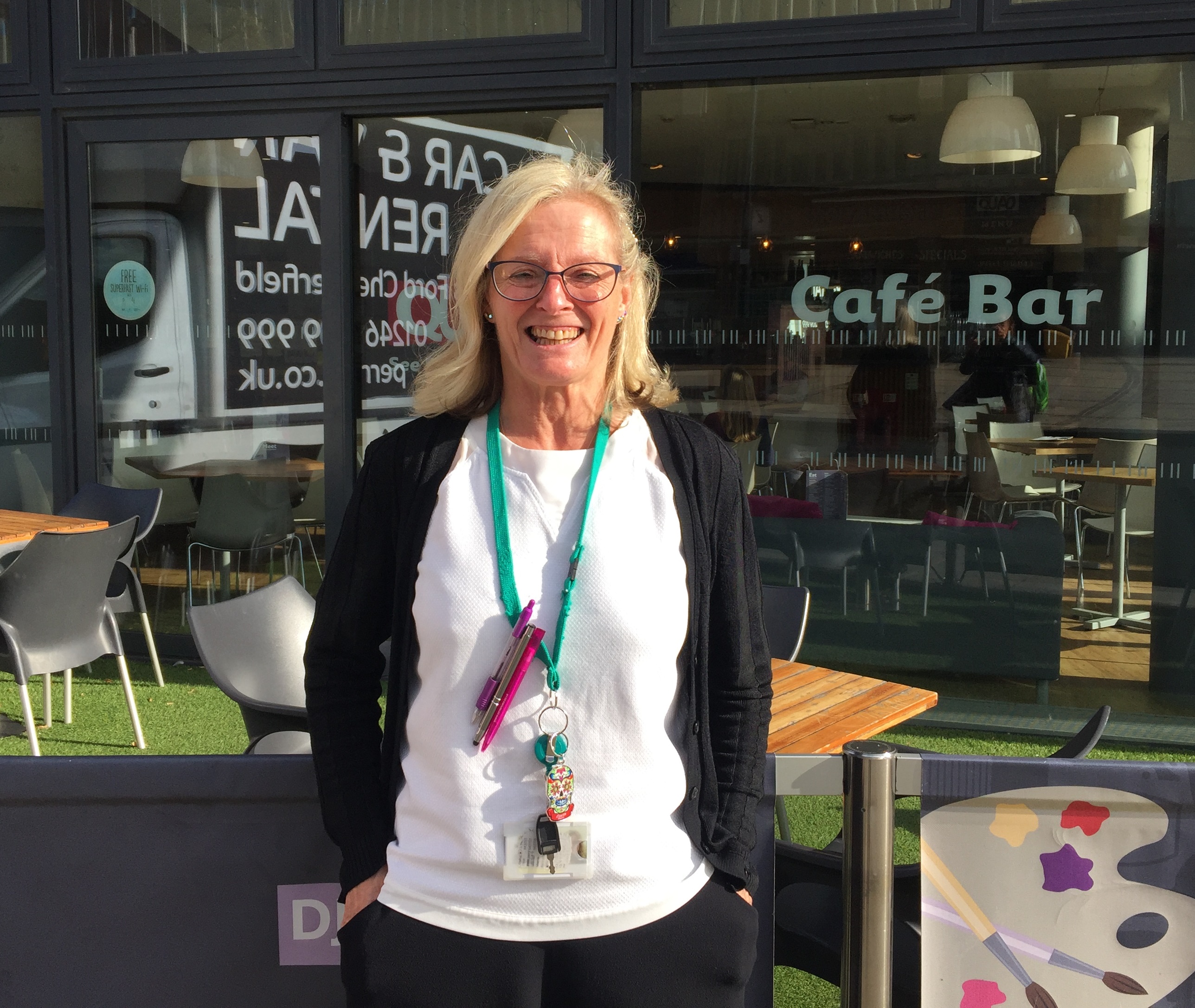Stoptober is the perfect opportunity to stub out your bad habits for good and 61-year-old Sue Cox from Derby is backing the 28-day stop smoking campaign, saying that if she can quit after 50 years of smoking, then anyone can.
More than five month’s smoke free, Sue joined Derby City Council’s free Livewell programme in March this year and set her quit date for her son’s 31st birthday on 28th of the month. Evidence shows that people are three times more likely to stop for good using a free local support service like Livewell rather than going it alone.
Milestone age
Turning 60 made Sue reassess her lifestyle and having quit before, Sue knew she had learned valuable lessons to succeed again. Sue was also keen to live longer than her parents who died from smoking related illnesses – lung cancer and heart disease – at a young age so she could be around for her daughter and son in adulthood.
“My parents were publicans so I grew up in smoky pubs in the 70s and 80s when lighting up was the norm. A lot of people smoked heavily in those days and from a young age. I started at 11 and at one stage was lighting up around 40 a day.”
A scary diagnosis
“I’ve always suffered with asthma but when my GP diagnosed me with chronic obstructive pulmonary disease (COPD) – a group of lung conditions that causes breathing difficulties, it compounded my decision to stop smoking. I didn’t want to be that person with the hacking cough who was dependent on oxygen.”
Expert support and free treatments
Sue, a Customer Service Advisor for the Council, received expert support from Livewell advisor, Stephen who helped her find the best treatment to suit her needs. He prescribed a medication called Champix (Varenicline) which works by blocking the action of nicotine in the brain to help reduce cravings and withdrawal symptoms.
“I’d broken my addiction before with Champix so Stephen suggested it could work well for me again. Knowing Stephen was available at the end of the phone or in person if I needed encouragement or advice was a real crux. My colleagues, family and friends were also very supportive.”
Feeling the benefits
Now that she’s stopped, Sue is delighted that she’s reduced her risk of developing 16 types of cancer, heart disease, heart attack and stroke. Her COPD is also under control.
“There are so many positive changes I’m feeling now that I’m not smoking. I’m not short of breath anymore and I’ve reduced the use of my inhalers. People tell me I’ve lost the sallowness in my skin and complement how good I look. Financially, I’m better off too, saving around £60 a week! My son and daughter are so proud of me and love their fresh smelling, healthier mum.”
Inspired?
With Livewell’s support and free stop smoking medicine, finding your will power like Sue to succeed is within your reach. You will have exclusive access to:
• Free Nicotine Replacement Therapy/stop smoking medicine for eight weeks, saving you around £180
• Support to quit using your e-cigarette/vape
• Personalised support for up to 12 months
• Invaluable tips and guidance to beat cravings
• Control your weight while quitting with free exercise sessions and our weight management course
Apply and book your first appointment online, email [email protected] or call the customer team on 01332 641254.
You can also get more information and keep track of the campaign by following Livewell on Twitter and Facebook.
Surviving without cigarettes – Sue’s Top Tips
- Take up the Stoptober challenge – joining thousands of others nationally and chunking your quit attempt into 28 days means you’re five times more likely to be successful. And if you get free support from Livewell you’ll increase your chances even more.
- Non-smoking social scene – avoid going out with friends who smoke (just for a while) and surround yourself with supportive non-smoking people.
- Find a hobby to keep your hands busy – knitting, playing games on your phone or doing a crossword/puzzle. Livewell’s Will Power bot has distracting games and videos to help.
- Quit together – if you have friends or family members who want to give up then why not do it together? I told colleagues, family and friends my quit date so they could support me.
- Change your work routine – I avoided using exits at work where colleagues smoke and made my lunch break more purposeful by going on a walk or picking up some shopping.
- Identify cravings – early mornings and evenings were particularly bad for me so I made a list of coping strategies which included switching my morning cup of coffee to reduce the temptation to smoke.
